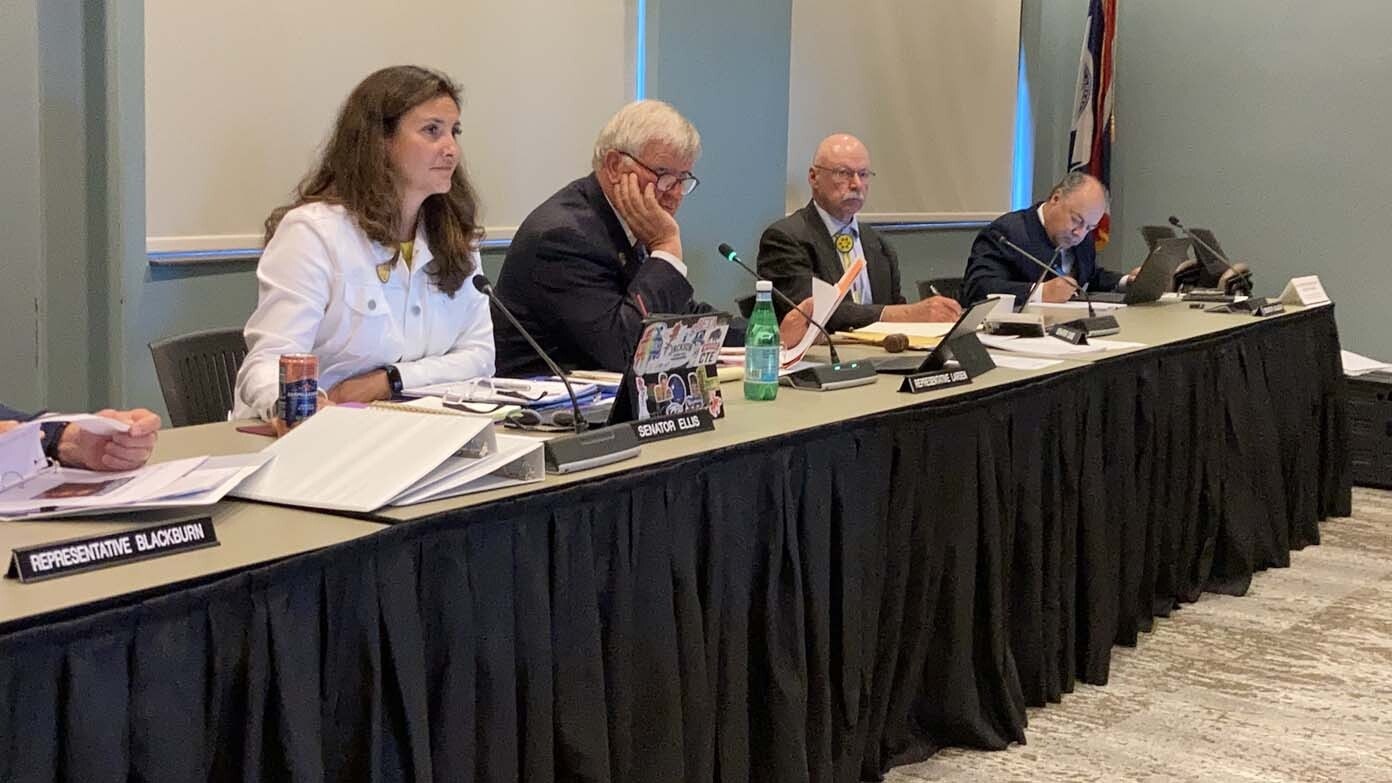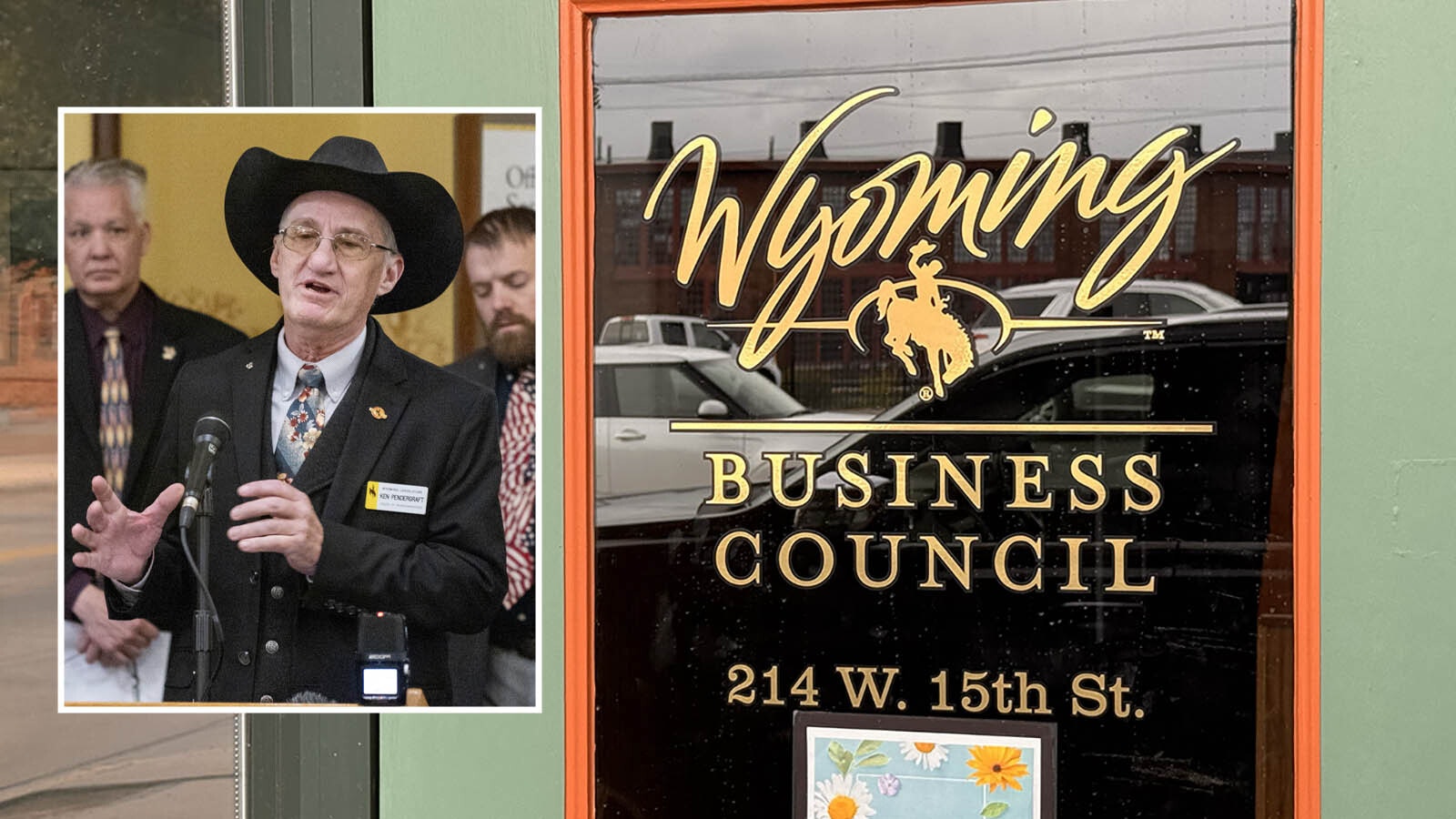Wyoming lawmakers now are torn on whether they should exempt sales taxes for American Indians shopping online or tax those purchases but share the revenues with tribal governments.
The Wyoming Legislature’s Select Committee on Tribal Relations met Monday in Riverton to discuss tax exemptions for internet sales made on the reservation.
Members of the Northern Arapaho and Eastern Shoshone Tribes who shop on the Wind River Indian Reservation are exempt from paying sales and use taxes, but tribal members shopping outside the reservation are taxed on purchases, said Brett Fanning, excise tax administrator for the Department of Revenue, at the meeting. So far, the exemptions haven’t been worked into Internet shopping.
Committee members looked for ways for tribal members to opt out of paying taxes when ordering internet purchases from an address on the reservation.
Committee member Sen. Cale Case, R-Lander, offered an alternate plan: keeping the state’s taxation in place for online sales, but ordering the Department of Revenue to give the tribal governments their cut of the taxes.
‘Really Need Revenue’
The reservation is a checkerboard of tribal lands held in trust – that is, under federal control – and lands owned privately, which are called “fee” lands. Many people living on the reservation are not tribal members.
Committee co-chairman Rep. Lloyd Larsen, R-Lander, floated the idea of getting better mapping of address types for tax purchases.
But Case said his proposition would simply allocate all taxes taken from reservation-based sales to the tribal governments.
“Whoever – Arapaho, Shoshone, white person, buying from Amazon on the reservation, delivered to a reservation address; the reservation governments would get that sales tax,” Case said.
Case added that the two tribal governments of Wyoming “really need revenue.”
Brenda Henson, director of the Department of Revenue, said sharing taxes with the tribes is a decision that would have to be codified in the state’s law; it couldn’t be done with a change of rules at the department level.
The change also couldn’t be made without consent from both tribes.
Northern Arapaho Council member Lee Spoonhunter told the committee to meet with the Wind River Tax Commission, which is a taxing entity shared by the two tribes.
Shoshone Tribe Not Present
The Eastern Shoshone Tribe’s government was not present at the meeting. Members from the Shoshone governing council have not attended meetings of the state’s tribal relations committee since Oct. 8, 2021, when Shoshone Chairman John St. Clair disputed the committee’s workings and accused it of interfering with the tribe’s sovereignty.
Whose Students?
Northern Arapaho council woman Kim Harjo told the committee that she would like to see the tribes credited for taxes that have been imposed on oil and gas operations on the reservation.
The tribes last year took over operations of the Circle Ridge oil and gas field on the reservation, after decades of leasing it. Now, Harjo said, she would like to see the revenues gathered historically from Circle Ridge given back to the tribal governments
“A lot of that money went to schools in the state of Wyoming,” said Harjo. Having the revenues given back to the tribes would “really benefit the tribes, because we face a lot of discrimination and racism,” she continued. “It’s really been held against us. That (credit) would be a form to show that we (the state) are not doing that.”
Case countered, saying that the Wyoming Legislature is unique because it uses its own tax revenues to fund schools on the reservation.
“When you think about that question, there’s a lot to unpackage there,” said Case. “It’s not as simple of an answer as you might think.”
‘Chastised’
Gary Collins, a member of the public, also approached the committee to push for tribal tax credits, saying that tribal members spend most of their money off the reservation.
“Last week the tribe distributed $5 million over and above (regular per capita payments to members),” said Collins. “Most of that money comes into Riverton to buy the basic goods.”
Collins said tribal members are just as integral to Fremont County’s infrastructural funding as non-tribal members.
“We as tribal members get chastised for using the City Park that we don’t pay for – when in fact we have.”
Collins said the tribe is soon to install a fiber optics line from Riverton, on its eastern end, to Fort Washakie, on its southwestern end.
“When that happens, there’ll be a lot more purchases forthcoming, and we need to address that surge,” he said. “It’s going to be bigger than we think today.”
The committee’s next meeting is scheduled for Oct. 18, at the University of Wyoming in Laramie.





